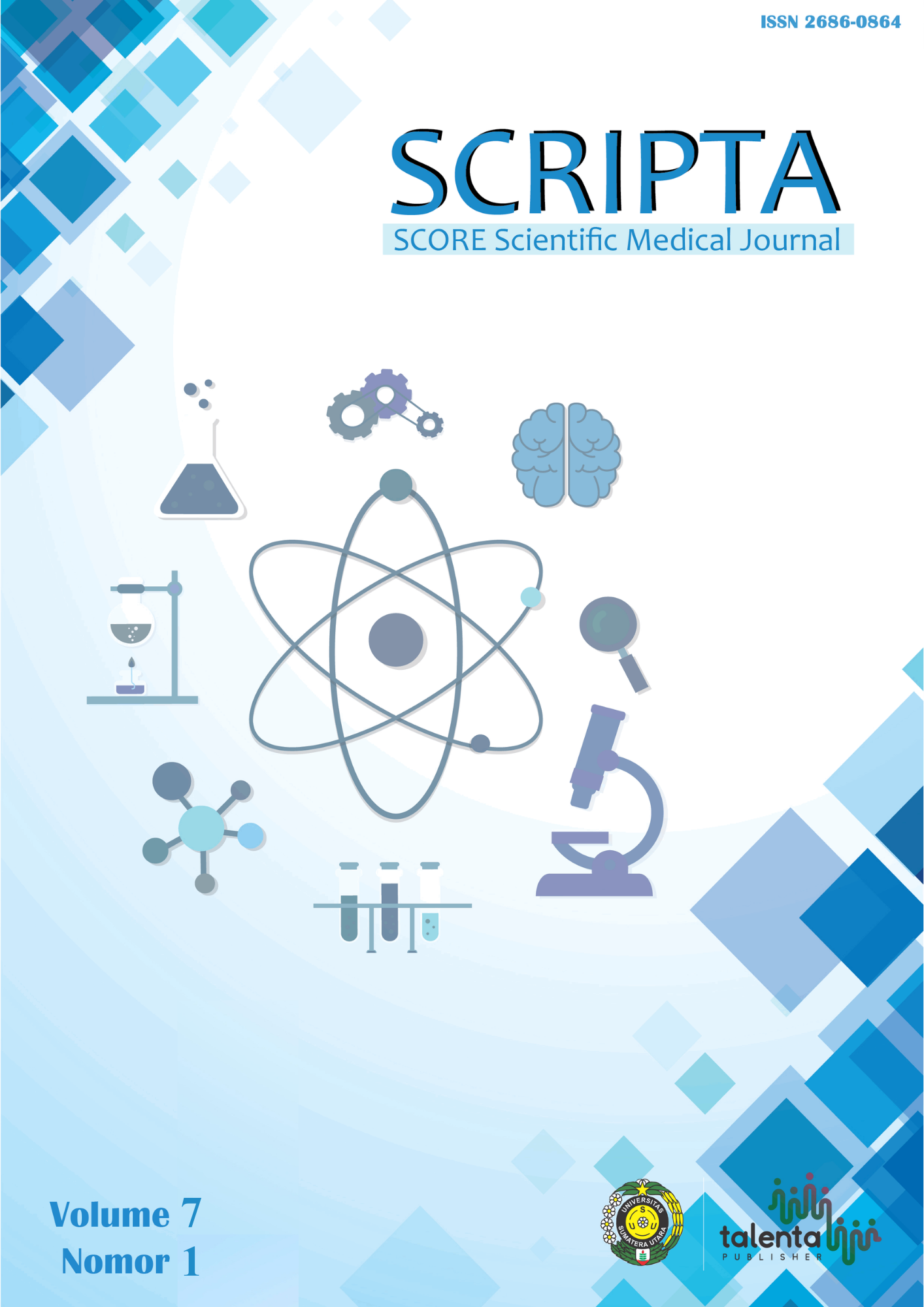Exploration of Moringa Oleifera and Curcuma Longa Compounds as Multi-Target Agents for Alzheimer’s Disease Through Bioinformatics Analysis
DOI:
https://doi.org/10.32734/scripta.v7i1.21326Keywords:
Alzheimer's disease, Penyakit Alzheimer, Moringa oleifera, Curcuma longa, multitarget, molecular dockingAbstract
Background: Alzheimer’s disease is a multifactorial neurodegenerative disorder. Current synthetic inhibitors often fail to address its complexity. Natural multitarget agents like Moringa oleifera and Curcuma longa may offer safer alternatives. Objective: This study aims to systematically evaluate the bioactive compounds of Moringa oleifera and Curcuma longa as potential multi-target agents against AD using molecular docking, ADME profiling, and toxicity prediction. Methods: This in silico study targeted five Alzheimer-related proteins (BACE1, GSK-3β, AChE, Tau, PKR) retrieved from the PDB and prepared using AutoDock Tools. LC-MS compounds were modeled with Biovia Discovery Studio and docked via PyRx. Toxicity was evaluated using ProTox-3.0. Results: The top 10 compounds showed binding affinities from –7.3 to –10.2 kcal/mol and were “inactive” for hepatotoxicity, neurotoxicity, and cytotoxicity. Turmeric compounds were also non-mutagenic and non-carcinogenic. Conclusion: Moringa oleifera and Curcuma longa demonstrate promising multitarget activity with a favorable safety profile. Bioinformatics enables efficient early screening.
Keyword: Alzheimer’s disease, Curcuma longa, Moringa oleifera, multitarget, molecular docking.
Latar Belakang: Alzheimer merupakan gangguan neurodegeneratif multifaktorial. Inhibitor sintetik saat ini dinilai belum mampu mengatasi kompleksitasnya. Senyawa multitarget alami seperti Moringa oleifera dan Curcuma longa berpotensi lebih aman. Tujuan: Penelitian ini bertujuan untuk mengevaluasi secara sistematis senyawa bioaktif Moringa oleifera dan Curcuma longa sebagai agen multi-target potensial terhadap AD menggunakan docking molekuler, profil ADME, dan prediksi toksisitas. Metode: Studi in silico ini menargetkan lima protein Alzheimer (BACE1, GSK-3β, AChE, Tau, PKR) dari PDB yang diproses di AutoDock Tools. Senyawa LC-MS dimodelkan di Biovia Studio dan didocking menggunakan PyRx. Toksisitas dievaluasi via ProTox-3.0. Hasil: Sepuluh senyawa teratas menunjukkan afinitas –7,3 s.d. –10,2 kcal/mol dan “inactive” terhadap hepatotoksisitas, neurotoksisitas, serta sitotoksisitas. Senyawa kunyit juga tidak mutagenik dan tidak karsinogenik. Kesimpulan: Moringa oleifera dan Curcuma longa berpotensi sebagai terapi multitarget Alzheimer yang aman. Bioinformatika mendukung skrining awal yang efisien
Kata Kunci: Curcuma longa, Moringa oleifera, multitarget, molecular docking, Penyakit Alzheimer
Downloads
Downloads
Published
How to Cite
Issue
Section
License
Copyright (c) 2025 Shakira, Meutia Maulina

This work is licensed under a Creative Commons Attribution-NonCommercial 4.0 International License.
Authors who publish with SCRIPTA SCORE Scientific Medical Journal agree to the following terms:
- Authors retain copyright and grant SCRIPTA SCORE Scientific Medical Journal right of first publication with the work simultaneously licensed under a Creative Commons Attribution-NonCommercial License that allows others to remix, adapt, build upon the work non-commercially with an acknowledgment of the work’s authorship and initial publication in SCRIPTA SCORE Scientific Medical Journal.
- Authors are permitted to copy and redistribute the journal's published version of the work non-commercially (e.g., post it to an institutional repository or publish it in a book), with an acknowledgment of its initial publication in SCRIPTA SCORE Scientific Medical Journal.














